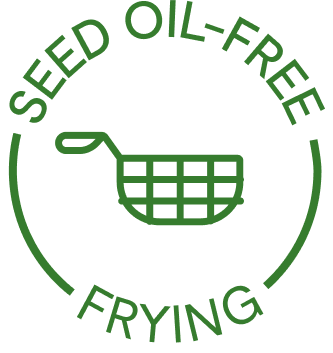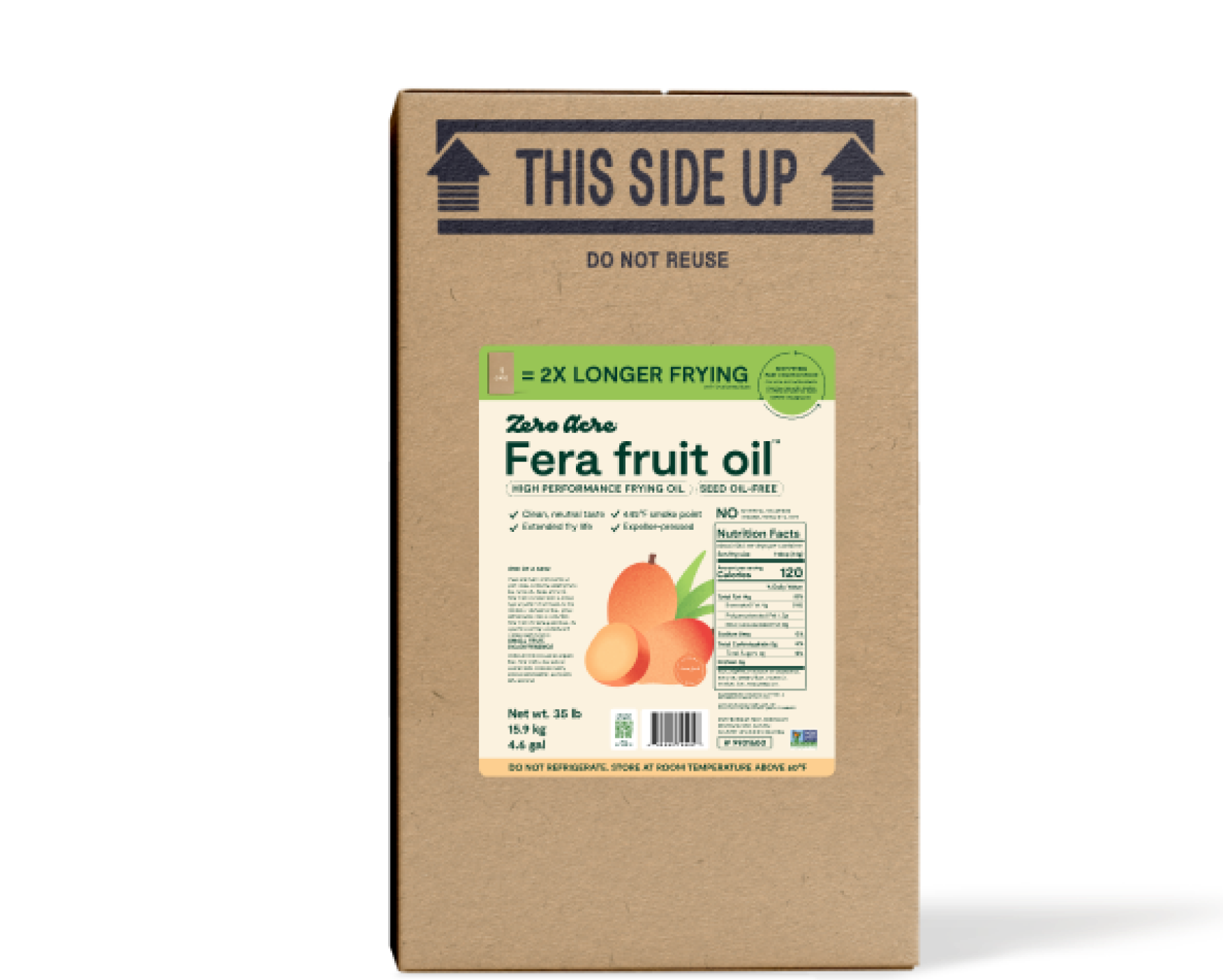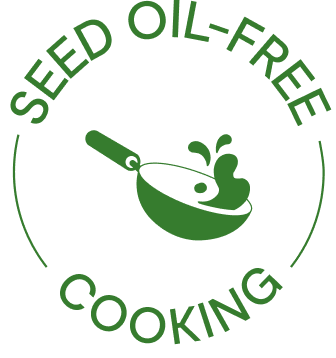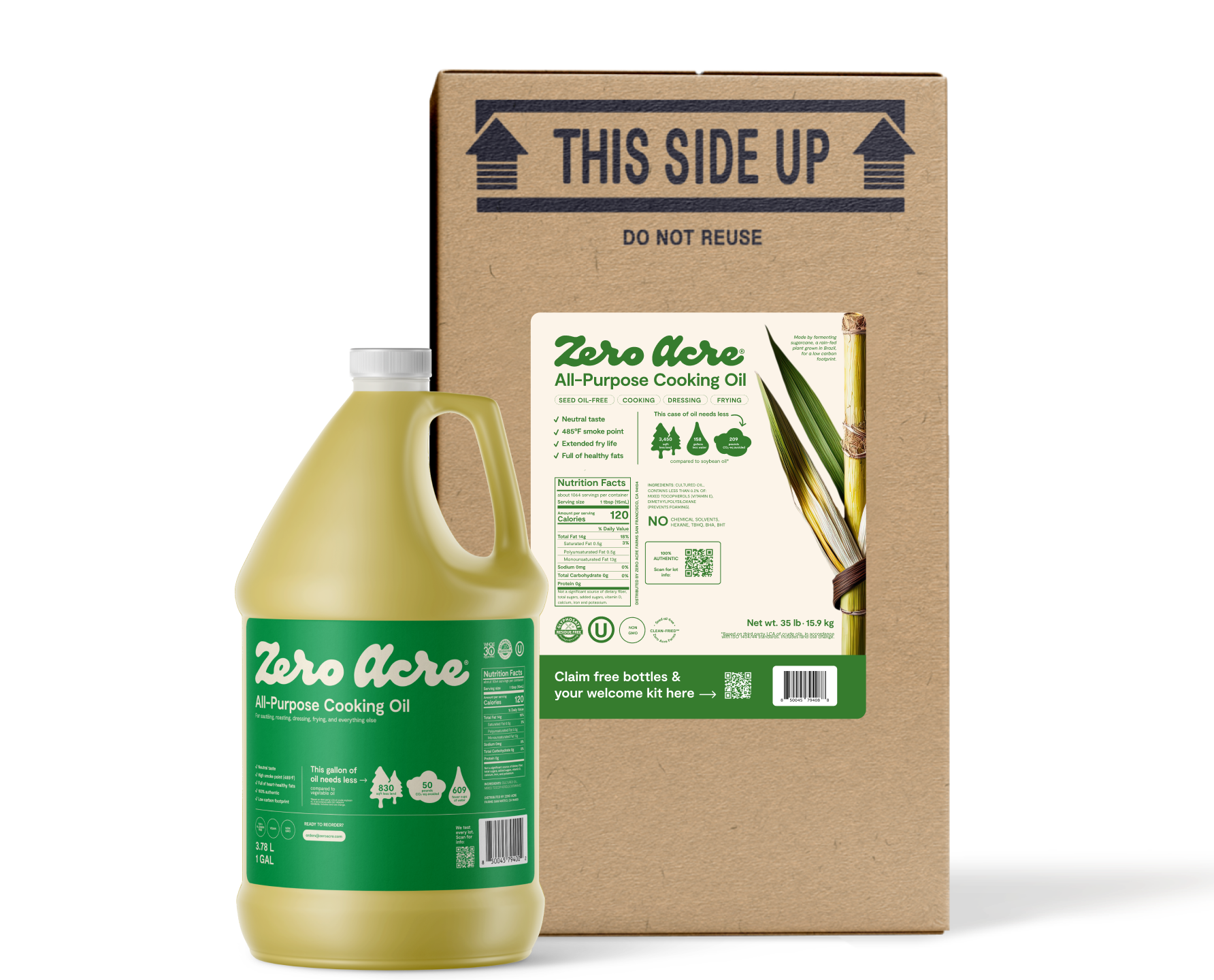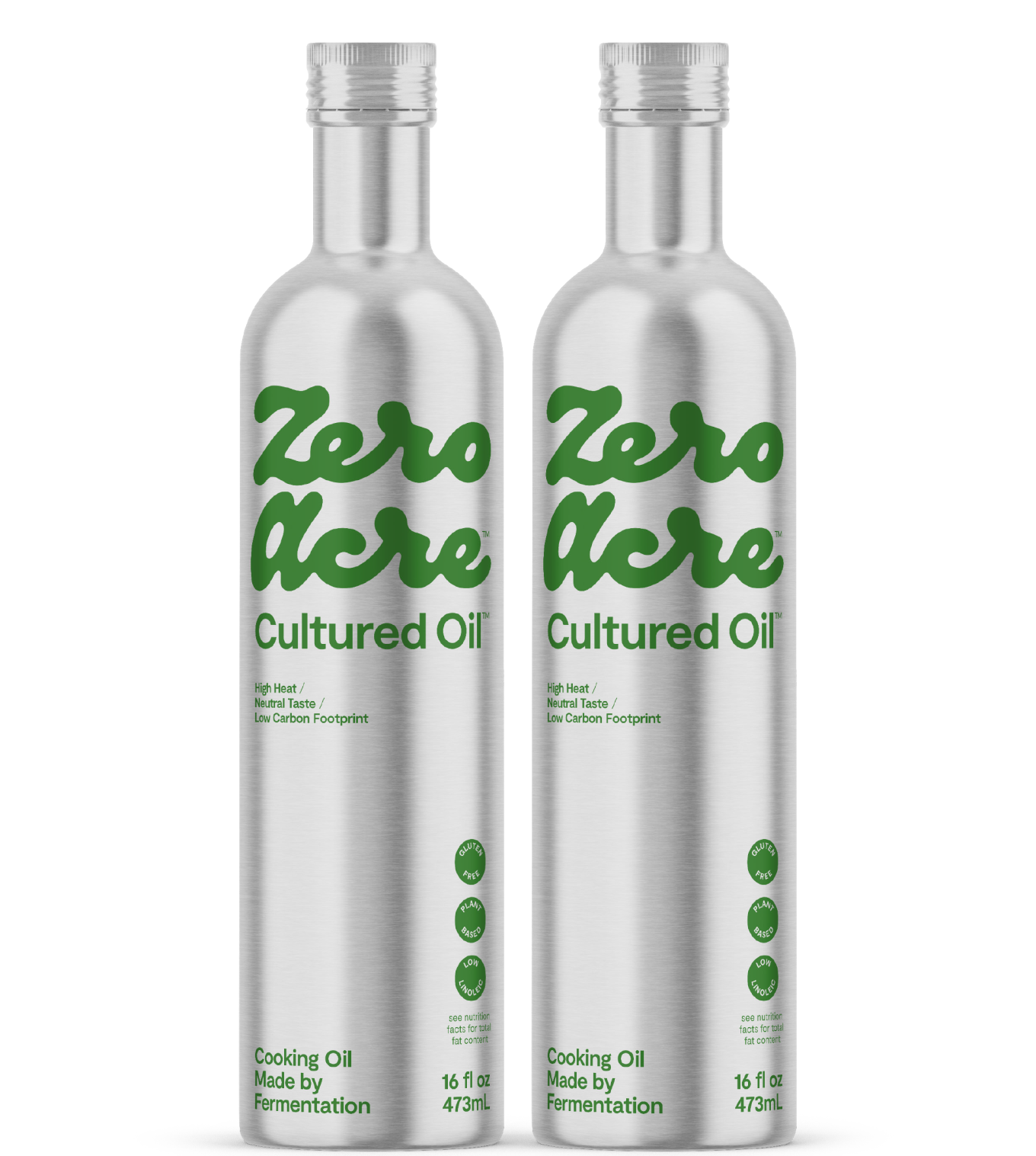WRITTEN BY: Courtney Sperlazza
Article at a Glance
If you’ve recently eliminated or limited seed oils, the grocery store may seem a lot more difficult than it used to be. A seed oil-free shopping list can make food choices easier.
Foods that are billed as “healthy,” like protein bars, granola, and frozen vegetables can contain seed oils.
This seed oil-free shopping list can help you find your new favorite items that suit your lifestyle, and we’ve already checked the ingredients labels for you.
These 70 foods do not contain seed oils, so you can add them to your cart — no thinking or label-reading required.
Introduction
If you look at most ingredient lists on your favorite packaged foods, you'll likely see at least one type of seed oil. From chips to popcorn to granola bars, oils like canola, soy, sunflower, and safflower oil are everywhere, and overall consumption has increased dramatically over the last 100 years. In fact, U.S. consumption of soybean oil alone has grown 1,000-fold since 1909 [*].
Unfortunately, seed oil consumption also increases linoleic acid levels in the body, which is connected to a myriad of health issues like inflammation, obesity, heart disease, and more.
If you recently decided to move away from seed oils, congratulations! You’re bound to start lowering inflammation, feeling more clear-headed, and even improving your brain and skin health.
But, let’s face it — you’re going to have to start reading some labels. There might be a learning curve, but we’re here to get you over the hump. We’ve put together this seed oil-free shopping list of everything you need for a well-stocked kitchen, from cooking ingredients to ready-to-eat meals, snacks, dips, and more. So, let this list give your brain a break and move through the store with ease.
Oils and Fats
Butter. Real butter should be a single-ingredient product, but some tub butters contain oils to make them spreadable. Always check ingredient labels to be sure. Try: Kerrygold
Virgin coconut oil. Solid coconut oil in the jar is likely just coconut oil, but some liquid coconut oils cut their product with cheaper oils like safflower oil, so you’ll want to double check. Opt for organic unrefined when you can.
Zero Acre oil. Zero Acre oil stands up to high-heat sauteéing and wok cooking, baking, frying, and more.
Beef tallow. Beef tallow is simply rendered beef fat. The final product is shelf-stable with a neutral, slightly beefy flavor. Try: Epic Provisions
Sauces, Dressings, and Marinades
Hot sauce. True hot sauce like Tabasco® typically contains pepper, vinegar, and salt — no oil. Check labels, but you can expect that most hot sauce will be fair game. Try: Yellowbird Hot Sauce
Buffalo sauce. Unlike hot sauces that you use by the drop, traditional Buffalo sauce is made by mixing hot sauce and butter. However, when companies bottle and sell it, they often add ingredients to make it pourable and shelf-stable. Check ingredient labels to be sure. Try: Primal Kitchen Buffalo Sauce
Vinaigrette dressing. While most bottled salad dressings contain seed and vegetable oils, you don’t have to resort to making it yourself every time if you know what to look for. Try: Fody Balsamic Vinaigrette
Caesar dressing. Look for an olive oil or avocado oil based caesar dressing for a classic salad that keeps you on track. Try: Chosen Foods Caesar Dressing
Teriyaki sauce. Most teriyaki sauces do not contain oils, but some contain sesame oil for a toasty, nutty flavor. Try: Kinder’s Organic Teriyaki Marinade and Dipping Sauce
Citrus herb marinade. Store-bought marinades typically contain cheap oil as a primary ingredient, so you might have to do some hunting to find the good ones or make your own. Try: Noble Made Marinade & Cooking Sauce, Citrus Herb
Meal-Replacement Bars
Granola bars. Granola bars sometimes contain added oils to toast the oats and grains, or to keep the bar from sticking to the wrapper. Try: 88 Acres Seed + Oat Bars or Perfect Keto Nola Bars
Protein Bars. Protein bars typically contain added oils to keep them soft and chewy, and the ones that are coated almost always contain palm oil. Try: Epic Provisions Performance Bars or Bare Performance Nutrition Field Bars
Meal Replacement Bars. As with protein bars, meal replacement bars typically contain oils for an appealing texture. Try: Sans Meal Bars
Chips, Popcorn, and Crackers
Avocado oil potato chips. Leading brands of chips are fried in canola, corn, soybean, or sunflower oil. Look for chips that contain simple ingredients, like potatoes, high-heat-friendly, low-linoleic oils like avocado oil, and salt. Try: Boulder Canyon Avocado Oil Sea Salt Potato Chips
Grain-free tortilla chips. If you’re avoiding grains and seed oils but still need a vehicle for your homemade guac, you have more options than ever. Try: Siete Sea Salt Grain Free Tortilla Chips
Potato chips. Indulge in the satisfying crunch and savory flavor of thinly sliced potatoes that have been fried or baked to crispy perfection.Try: Jackson's Sea Salt Sweet Potato Chips or Boulder Canyon Avocado Oil Sea Salt Potato Chips
Popcorn. A lot of microwave popcorn brands use palm oil, and you’ll see sunflower oil on the ingredients list of many bagged varieties. Try: Lesser Evil Organic Popcorn
Pork rinds. When you buy pork rinds, the ingredients list should be short and simple. Look for brands containing pork skins, pork fat, and some seasonings. Try: Epic Provisions Pork Rinds
Condiments
Mayo. Buying mayonnaise with quality ingredients can be tricky. Even if you see “olive oil” or “avocado oil” on the label, companies often blend in cheaper oils to increase profit margins. As always, check your labels. Try: Chosen Foods Avocado Oil Mayo or Primal Kitchen Mayo
Ketchup. Ketchup should not contain oil at all, so most brands will fit into your seed oil-free lifestyle. Try: Good Food For Good Sugar-Free Organic Ketchup
Mustard. Mustard ingredients should be simple — typically, mustard seeds, vinegar, water, and seasonings. Most mustards won’t contain any oil at all.
BBQ Sauce. Most BBQ sauces do not contain oil at all, but check labels to be sure. Try: The New Primal, Noble Made BBQ Sauce
Breads, Tortillas, and Wraps
Bread. Store-bought breads and bread mixes contain a range of ingredients — some are high quality, and others are the cheapest available. The majority of breads that you find on grocery shelves will contain seed oils, so check ingredient labels. Try: Ezekiel 4:9 Sprouted Bread, King Arthur Alaskan Sourdough Yeast Bread Mix.
Gluten-free bread. As with wheat breads, gluten-free bread ingredients can vary in quality. Try: Canyon Bakehouse Mountain White
Tortillas. Traditional homemade tortillas contain lard, but companies save money by using shortening, derived from seed oils, in its place because it’s shelf-stable and inexpensive. Try: Siete Cassava Tortilla Wraps
Beans
Single-ingredient dried and canned beans will almost never contain added oil. Traditional homemade refried beans are made with lard, and canned versions often contain seed oils in place of lard. Here are a few better-for-you brands.
Try:
Black beans: Good & Gather Black Beans (Target)
Pinto beans: Thrive Market Organic Pinto Beans
Chickpeas: Eden Organic Garbanzo Beans
Refried beans: Siete Refried Pinto Beans
Bone Broths and Stocks
Frozen broth or stock. When you buy chicken and beef stock, you could be buying expensive saltwater, or you might find rich, slow-simmered broth with a high nutrient value. Some contain oil, some do not. Try: Kettle & Fire Organic Chicken or Beef Broth
Stock in a carton. As with frozen stocks, the ingredients in broths and stocks vary between brands. Try: Pacific Organic Chicken Stock
Cereal and Granola
Cereal. Seed oil-free cereal is a tall order. Even quality brands with clean, organic ingredients often have seed oils near the end of the ingredients list. Try: Three Wishes Grain-free Cereal, Fruity flavor
Granola. Granola sometimes has added oil but many brands do not. Check labels to be sure.
Frozen Fruits and Vegetables
Frozen fruits. Most frozen fruits will not contain fats and oils.
Frozen vegetables. Look for single-ingredient frozen vegetables to ensure that you’re buying seed oil-free products. Frozen vegetables that contain buttery sauces may contain seed oils, so check labels if your veggies contain any enhancements.
Fried foods. Frozen fries, tots, and onion rings are fried before they are packaged and will almost always contain seed oils. Try Gold Rush organic fries and hash browns
Nut and Seed Butters
Nut and seed butters are naturally free of seed oils. The problem comes in when the manufacturer wants to make them last longer on the shelf, or minimize separation by preventing the nut’s natural oils from floating to the top of the jar. To accomplish this, producers mix nut butters with fats that are solid at room temperature. Most often, you’ll see palm kernel oil or hydrogenated vegetable oil (derived from cottonseed or soybean oil) on the ingredients label.
Look for nut and seed butters that contain only ground nuts and salt.
Try:
Kirkland SignatureOrganic Peanut Butter
Justin’s Almond Butter
SunButter No Sugar Added Sunflower Butter
Cookies and Cookie Doughs
As far as ingredient quality goes, cookies, mixes, and ready-to-bake cookie doughs run the gamut. Here are a few brands that have squeaky clean ingredients lists, are seed oil-free and will satisfy your sweet tooth.
Try:
Deux Enhanced Cookie Dough
Bob’s Red Mill Gluten Free Chocolate Chip Cookie Mix
Hu Grain-free Cookies
Emmy’s Coconut Cookies
Home Dough Frozen Cookie Dough
Cappello’s Double Chocolate Cookie Dough
Milks, Cream, and Creamers
Seed oils are a common ingredient in many non-dairy milks, creams, and coffee creamers to help mimic the creamy consistency of animal milks. Make sure to always check your labels, even with the most trusted brands.
Milk. Most dairy milks, including half-and-half and heavy whipping cream, are naturally seed oil-free. For a seed oil-free milk alternative, try Malk almond milk.
Coffee creamer. Companies often thicken creamer with seed oils and other additives to achieve a creamy texture. Try: Kitu Super Creamer
Non-dairy creamer. Non-dairy coffee creamer producers are notorious for formulating with seed oils, particularly hydrogenated seed oils, as primary ingredients. Choose carefully, and be prepared to spend a little more for quality ingredients. Try: Nut Pods creamer
Yogurt and Yogurt Products
Dairy yogurt. Most often, dairy yogurt doesn’t contain added fat. Try: Nancy’s Organic Grass-fed Yogurt
Vegan yogurt. There are plenty of non-dairy options for yogurt, and most do not contain added oils. Check labels though, because plant milks often ferment into a thinner yogurt, and companies use additives to thicken the yogurt into a consistency similar to dairy yogurt. Try: Forager Cashew Milk Yogurt
Meats and Cheeses
Meats. Single-ingredient meats that you buy from the butcher counter or meat case never contain added oil. Ask your deli clerk to read the label when buying meat mixtures like sausage, or marinated meat or fish as those usually contain seed oils. Deli meats sometimes contain additives and cured meats, like salami and prosciutto, almost never contain added oil, but check labels to be sure.
Cheeses. Most real cheeses do not contain added oil. Cheese spreads and cheeses labeled “cheese product” or “cheese food” usually contain seed oil as a primary ingredient. Try: Horizon organic cheeses
Vegan cheese. Many vegan cheeses contain seed oils as a main ingredient. Look for brands that use better-for-you oils instead. Try: Miyokos Smoked Gouda Plant Milk Cheese
Hummus and Other Dips
Hummus. Traditional homemade hummus contains chickpeas, olive oil, tahini, lemon, and garlic, with variations here and there. Store-bought hummus is often made with cheaper oils, so keep an eye on ingredient labels. Try: Cava Traditional Hummus
Cheese dips. Most cheeses aren’t naturally dippable at room temperature or refrigerated, so cheese dips often contain oils to achieve a chip-friendly texture. Try: Primal Kitchen No Dairy Plant-based Queso Style Dip
Guacamole. Avocados are a source of fat, so most guacamole recipes do not need additional oil. Still, it’s a good idea to check labels. Try: Wholly Guacamole Classic
Salsa. Most salsas do not contain oil.
Ice Cream
Dairy ice creams. Traditional ice cream doesn’t contain added oil, but the brands that use cheaper ingredients may use seed oils as stabilizers or thickeners. Flavors that contain candies or cookies may contain seed oils if the candies or cookies were made with seed oils. So, even if a brand generally favors clean ingredients, check your labels. Try: Breyer’s Natural Vanilla
Non-dairy ice creams. Just like non-dairy milks and creamers, non-dairy ice cream may contain seed oils for a thicker consistency and creamier taste. Try: So Delicious Vanilla Bean Coconut Milk Ice Cream
Pasta Sauce
Pasta sauce starts with sauteing onions and garlic. Most jar pasta sauces use seed oils for this step, so read labels before buying.
Try:
Rao’s Homemade Marinara Sauce
Fody Marinara Pasta Sauce
Frozen Pizza and Pizza Crusts
Pizza and pizza crust without seed oils can be tough to find, but they do exist. Here are a few that we found.
Cappello’s frozen pizza
Cappello’s naked pizza crust
Daily Harvest flatbreads
Ready-to-Eat Foods
It can be challenging to find ready-to-eat foods that do not contain seed oils, so we’ve done the label-reading for you. Here’s a list of foods that can be prepared in minutes.
Three Bridges Egg Bites
WestEnd Cuisine Grilled Chicken Skewers, Mediterranean Style
Kevin’s Entrees: Chicken Chile Verde, Korean BBQ Chicken, and others
Canned tuna in water or olive oil (check labels to make sure it’s olive oil and not a blend)
Wild Zora Paleo Meals To Go
Grandcestors meals
Patagonia Provisions Lemon Herb Mussels
Check out our Seed Oil-Free Snack List for more snack go-tos.
The Takeaway
When you decide to limit or eliminate seed oils from your life, you’ll read a lot of labels early on. After a few grocery trips, it will become second nature to choose fresh and packaged foods that fit your lifestyle. It takes practice, but in the meantime, use this shopping list of seed oil-free foods as your cheat-sheet to a well-stocked pantry. It won’t be long before you build your own list of favorite items that work with your lifestyle.
If there are any seed oil-free foods that we forgot to add to our list, feel free to let us know by sending an email to hello@zeroacre.com and we’ll be happy to add it!

The Big List of Seed Oil-Free Snacks
Choosing quality seed oil-free snacks means reading labels, which can be a hassle. Here’s a full list of seed oil-free snacks so you don’t have to think about it.

13 Seed Oil-Free Coffee Creamer Alternatives
Choose (or make!) a coffee creamer without added seed oils to get the most health benefits out of your daily cup of joe.

35+ Seed Oil-Free Big Game Day Snacks
It’s hard to find seed oil-free versions of your favorite game day snacks, so we’ve put together a list of 35+ options that work with your seed oil-free lifestyle.

